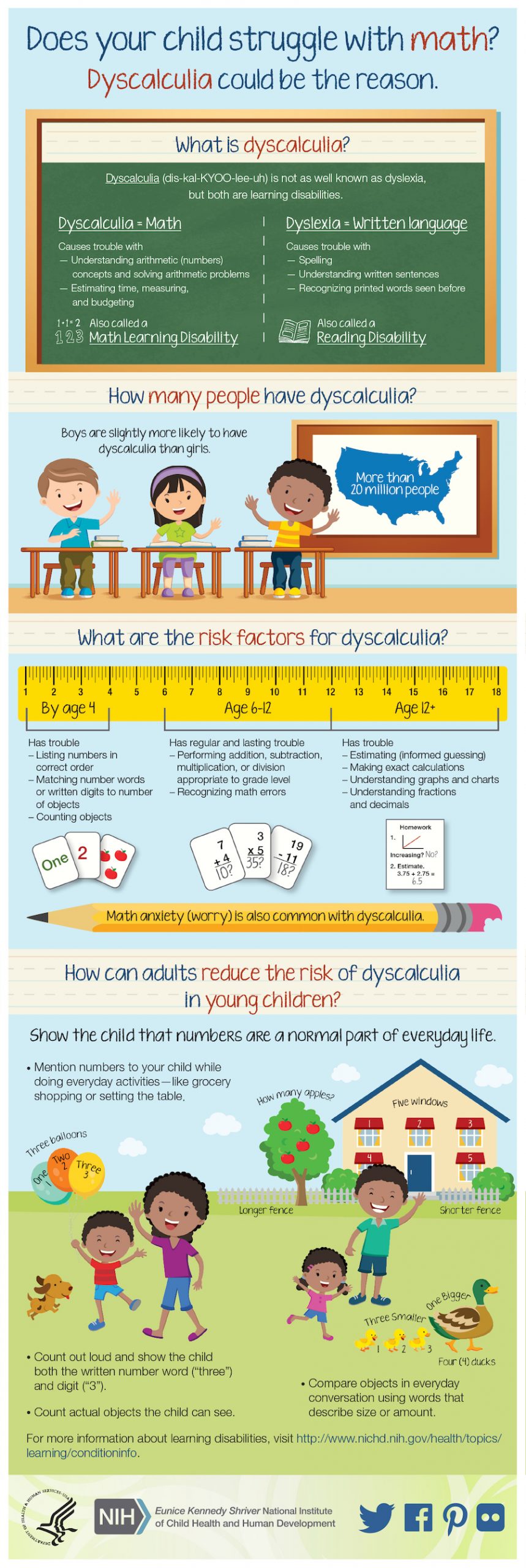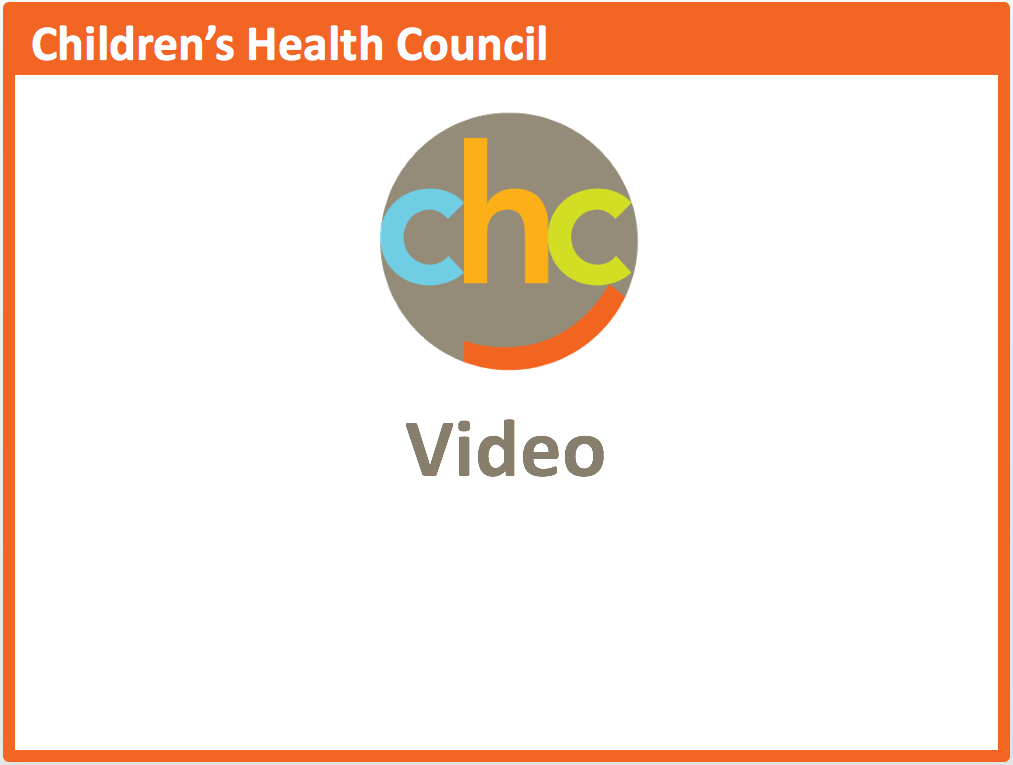 Dyscalculia (dis-kal-KYOO-lee-uh) is not as well known as dyslexia, but both are learning disabilities.
Dyscalculia (dis-kal-KYOO-lee-uh) is not as well known as dyslexia, but both are learning disabilities.
Dyscalculia = Math
Causes trouble with:
- Understanding arithmetic (numbers) concepts and solving arithmetic problems
- Estimating time, measuring, and budgeting
Also called a Math Learning Disability
Graphic: White chalk on a green chalkboard forms the equation “1 + 1 = 2” and outlined numbers “1 2 3.”
Dyslexia = Written language
Causes trouble with:
- Spelling
- Understanding written sentences
- Recognizing printed words seen before
Also called a Reading Disability

How many people have dyscalculia?
Boys are slightly more likely to have dyscalculia than girls.
What are the risk factors for dyscalculia?
By age 4
Has trouble
- Listing numbers in correct order
- Matching number words or written digits to number of objects
- Counting objects
Age 6–12
Has regular and lasting trouble
- Performing addition, subtraction, multiplication, or division appropriate to grade level
- Recognizing math errors
Age 12+
Has trouble
- Estimating (informed guessing)
- Making exact calculations
- Understanding graphs and charts
- Understanding fractions and decimals
How can adults reduce the risk of dyscalculia in young children?
Show the child that numbers are a normal part of everyday life.
- Mention numbers to your child while doing everyday activities—like grocery shopping or setting the table.
- Count out loud and show the child both the written number word (“three”) and digit (“3”).
- Count actual objects the child can see.
- Compare objects in everyday conversation using words that describe size or amount.
For more information about learning disabilities, visit http://www.nichd.nih.gov/health/topics/learning/conditioninfo. Download a PDF of the infographic.
Source: National Institute of Child Health and Human Development | Infographic: Does your child struggle with Math?, https://www.nichd.nih.gov/newsroom/digital-media/infographics/MathLearningDisability | Public domain. Last reviewed December 2017. Retrieved July 2022.
To schedule an evaluation or to get advice, call or email a CHC Care Coordinator at 650.688.3625 or careteam@stage.chconline.org CHC teletherapy services are available now.



